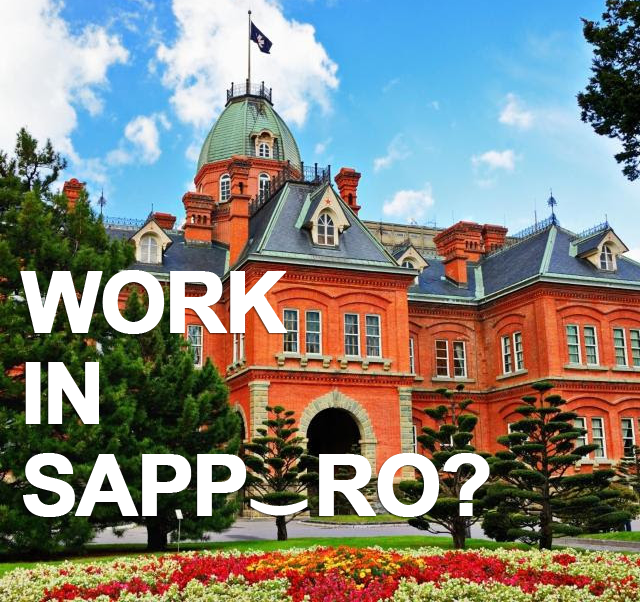The new Japanese Visa type, called “Specified Skills” (tokutei ginou, 特定技能) visa. Which the Japanese government has allowed more than 350,000 foreign workers to be employed in 14 industries in 5 years and over. The visa requirements would not include a degree and would allow holders the chance to upgrade to permanent residency in Japan.
There are 2 new visa types being introduced: Specified Skills I and Specified Skills II. Of the two, Specified Skills I is the more immediately accessible. Let’s look at this in more detail.
Unlike other visas for foreigners in Japan, such as Specialist in Humanities or Instructor, which typically require a university degree or a decade or so of practical experience if you don’t have a degree, the manual nature of the work involved for this new visa means that the bar to entry is different.
There are certain requisites that will need to be met. Firstly, you will need to have some Japanese ability. It is thought that Japanese Language Proficiency Test level N4 is the minimum standard, though this may be higher depending on which industry you enter. It stands to reason that a customer- facing role will require a higher command of the local language than factory work would.
Secondly, you will be required to have a degree of skill in the industry you have applied for. Though the government hasn’t been too specific on this so far, based on past cases, this means either a locally recognized certification in the area of work, or at least a year or two of experience.
If you are currently in Japan on the Technical Intern Training visa, then it may also be possible to upgrade to the Specified Skills 1 visa when your internship is complete, should you wish to remain in Japan.
There are, however, some additional caveats.
Specified Skills 1 visa holders are only allowed to remain in the country for a maximum of 5 years, and they are not, in principle, allowed to bring their family with them.
If you wish to stay in Japan longer, or to bring your family to live with you, then, in time, you will need to upgrade to a Specified Skills 2 visa. This can be done if you can prove that you have achieved a higher level of specialism in your area of work during your time in Japan. For example, if you attained additional certification or gained a promotion within your company.
This second visa type is a step up from Specified Skills 1 and recognizes those workers who are more highly qualified or better experienced in their field of work.
If you qualify for a Specified Skills 2 visa, then there are some additional benefits to be had.
Firstly, provided you continue working, obeying the law and paying your taxes, the visa can be renewed indefinitely, there is no limit on how long you can stay in Japan and like most other visa types, you could, in principle, apply for permanent residency after 10 years of continuous residence.
However, as this new status doesn’t exist yet, there is currently no data available to determine the likelihood of your application for permanent residence being approved.
You can shift to “Specified Skills II” by passing the exam specified by the competent ministry concerned for each industry from “Specified Skills I”.
So far, the government has only specified two restrictions. As with most visas, those convicted of criminal offences in their home countries are unlikely to be not accepted.
Second, residents of countries with whom Japan does not have an agreement on repatriation after deportation, Iran being the most prominent example, are also unable to apply.
Based on past precedent, it is likely that further criteria, such as age restrictions.
• It must be proven through an examination or other evaluation method that the applicant possesses skills requiring consideration knowledge of experience necessary for the work which the applicant intends to engage in.
• It must be proven through an examintaion or other evaluation method that the applicant possesses the Japanese language proficiency necessary for living in Japan and Japanese language proficiency necessary for the work which the applicant intends to engage in.
• The applicant must possess a passport valid for at least six (6) months prior to the intended date of departure.
• Those who have successfully conpleted "Technical Intern Training" are exempted from the requirements under 1st and 2nd row.
There are no particular requirements in regards to applicants' educational backgrounds. However, there is a minimum age requirement for specified skilled workers - they must be over 18 years of age.
• Changing workplaces in the same job category (Type of work) can be permitted.
• changing to a job in different job catergory in the same field can also be permitted if the skill level is recognized as similar to current level through exams.
• Changing jobs to a different industrial field is also possible, if the similarity of the skill level is recognized between those job categories through exams.
• Care Worker
• Building cleaning maintenance
• Machine Parts & Tooling Industries
• Industrial machinery Industries
• Electronics and electronical equipment
• Electric, Electronics and Information Industries
• Constrution Industry
• Shipbuilding and Ship Machinery Industry
• Automobile repair and maintenance
• Aviation Industry
• Accomodation Industry
• Agriculture
• Fishery & Aquaculture
• Manufacture of food and beverages
• Food Service Indutry
Career Force Co., Ltd. Consultant |
English: marvin@career-force.co.jp nakano@career-force.co.jp |
Japanese: ichikawa@career-force.co.jp nakai@career-force.co.jp |
|---|---|---|
| 011-736-1113 | ||
| Weekdays (Mon-Fri) 10:00 - 19:00 | ||
